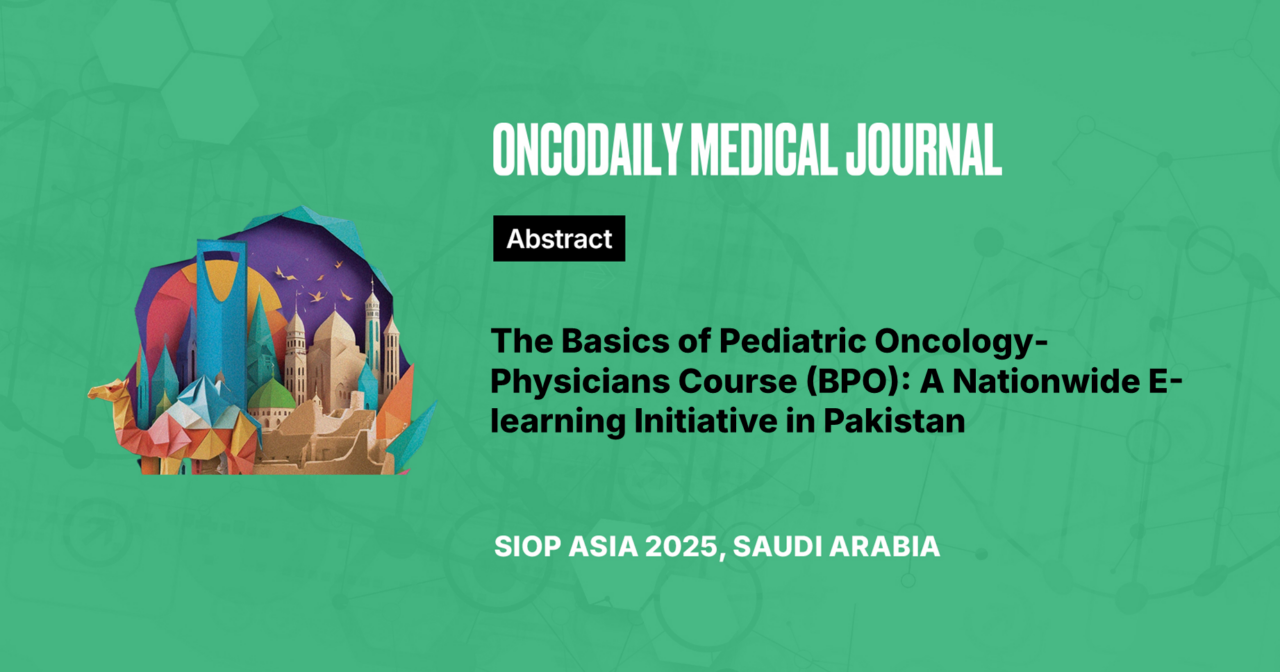Abstract
Introduction: Pediatric oncology in low- and middle-income countries (LMICs) faces significant challenges, with many children in remote areas remaining undiagnosed due to limited awareness among healthcare providers. Delayed diagnosis hampers timely interventions and worsens outcomes.
The Pediatric Hematology-Oncology Department at the Indus Hospital and Health Network (IHHN), with support from a My Child Matters grant by the Foundation S, developed the Basics of Pediatric Oncology-Physicians Course (BPO). This 12-week online program aimed to equip medical professionals across Pakistan with essential skills to enhance the early diagnosis, management, and referral of childhood cancers.
Methodology: From 34 applicants, 20 participants were selected for the course based on clinical relevance. Delivered via the Moodle platform, the 12-week program comprised six modules: leukemia, lymphoma, neuro-oncology, solid tumors, supportive care, and palliative care. Each module featured pre-recorded lectures, interactive videos, case-based learning sessions on Zoom, and an end-of-module assessment.
The curriculum focused on common pediatric cancers, including early signs, diagnostic approaches, initial management, and referral practices. Certification required active participation and a minimum score of 60% per module. Pre- and post-module evaluations measured participants’ knowledge improvement.
Results: A total of 20 participants, including physicians from pediatrics, pediatric oncology, and general medicine, were enrolled. The average module score was 12 out of 15 (80%). Seventeen participants successfully completed all modules and received certificates, while three were unable to fulfill the requirements. Participant feedback revealed that 77% were highly satisfied with the course content overall. Additionally, 56% strongly agreed that the post-module case-based interactive sessions effectively reinforced their knowledge and improved decision-making skills.
Conclusion: The BPO course demonstrated the feasibility and effectiveness of an online pediatric oncology educational initiative in a low-resource setting. This program can serve as a model for similar educational efforts, bridging knowledge gaps and fostering improved care for children with cancer in LMICS.





